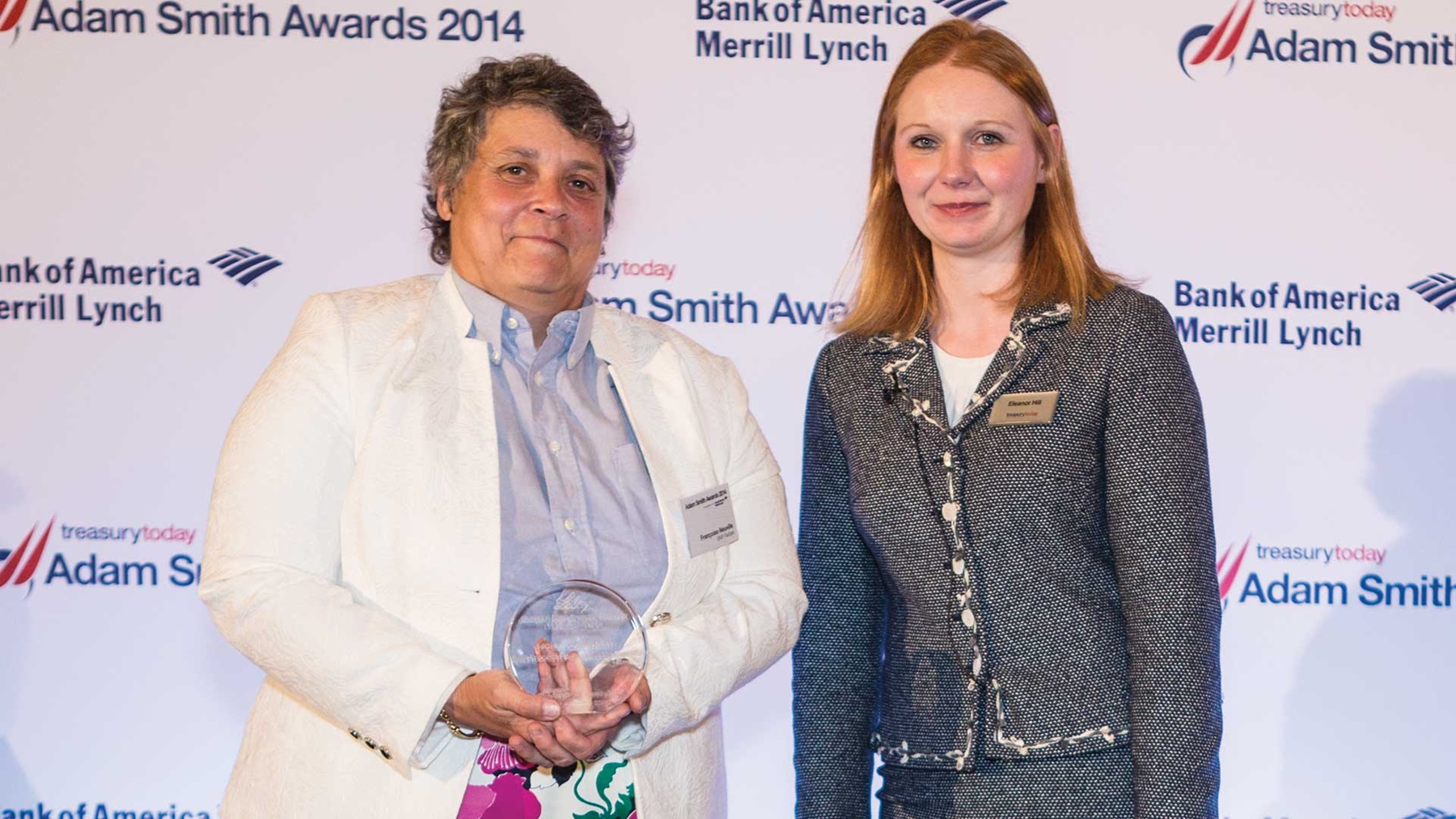
Photo of Françoise Neuville of BNP Paribas collecting the Award on behalf of Giuseppe Rossi-Espagnet.
Eli Lilly implemented a comprehensive and scalable strategy across 43 countries in EMEA, within a three-year timeframe. The company’s effort serves as an excellent success story and best practice for those interested in centralising and optimising general accounting, payment and collection activities in the fragmented and diverse European market.
Giuseppe Rossi-Espagnet
EMEA Regional Cash Manager

Founded in 1876 and headquartered in Indianapolis, Indiana in the United States, Eli Lilly is the tenth largest pharmaceutical company in the world and distributes products across 143 countries, with manufacturing plants located in 13 countries and clinical research conducted in 50 countries. Lilly has a global staff of approximately 38,500 employees and is consistently ranked as one of the best companies in the world to work for.
in partnership with

The challenge
Before the project Eli Lilly realised that its current treasury model was not sustainable and it needed to operate more efficiently.
In late 2009, Eli Lilly embarked on an effort to reduce its operating expenses and consolidate operational activities. As part of this effort, Lilly sought to redesign and centralise its general accounting, purchase-to-pay, and order-to-cash processes among four regional shared service centres (SSCs) – EMEA, North America, Latin America and Asia Pacific.
To achieve its stated objectives, the EMEA region needed to standardise and rationalise its processes and systems:
- Standardise and automate collections and payment processes with the support of a single instance of SAP and a single interface (SWIFT).
- Standardise and automate the upload, posting and clearing of the daily electronic bank statement (EBS).
- Standardise and automate cash concentration and funding of legal entity accounts.
- Achieve total visibility and access to global cash.
- Rationalise banks and bank accounts.
The solution
“In order to move to a shared service centre, we needed to implement a regional banking model,” explains Giuseppe Rossi-Espagnet, EMEA Regional Cash Manager.
Eli Lilly moved from a decentralised to a centralised model in EMEA, which included the following:
- Payments were automated and centralised, reducing rejections.
- Single instance of SAP.
- Single bank portal for the region for emergency or tax payments.
- One bank per region, leading to improved banking relationships and support.
- Simplified account structure (with a standard of one bank account per legal entity), leading to a reduction in administrative costs and bank fees.
- Maximised and automated physical cash concentration.
BNP Paribas and SWIFT Service Bureau were the solution providers for the project.
Best practice and innovation
In the current challenging economic environment, many companies are under pressure to improve their efficiency and optimise resources. Eli Lilly implemented a comprehensive and scalable strategy across 43 countries in EMEA, within a three-year timeframe. Eli Lilly’s effort serves as an excellent success story and best practice for those interested in centralising and optimising general accounting, payment and collection activities in the fragmented and diverse European market. The regional efforts also expanded the value and function of the EMEA SSC.
“We are extremely satisfied with the project and the benefits delivered,” concludes Rossi-Espagnet.
Key benefits
- Simplification and optimisation of its systems and processes: single regional bank portal, single bank interface for disbursements, single instance of ERP.
- Payments were automated and centralised, with minimal rejections – 0.6% of total payments, which is an all-time low.
- Consolidation of banking activities via BNP Paribas led to a decline in bank fees, a reduction in administrative activities and improved customer service with a single point of contact.
- Greater control and visibility, leading to improved management of trapped cash.
- Prepared Eli Lilly to be SEPA compliant, well ahead of the February 2014 deadline.
With an automated, centralised payments structure, Eli Lilly’s performance indicators in EMEA for cash management have improved as follows:
- 95% of payments are processed through the central ERP infrastructure.
- 90% of all financial transactions are posted automatically in the ERP.
- Bank accounts have been reduced by 40%, resulting in lower administrative costs (including bank fees) and better control.
- The return on cash investment has increased considerably as a result of better cash consolidation and active management of cash.